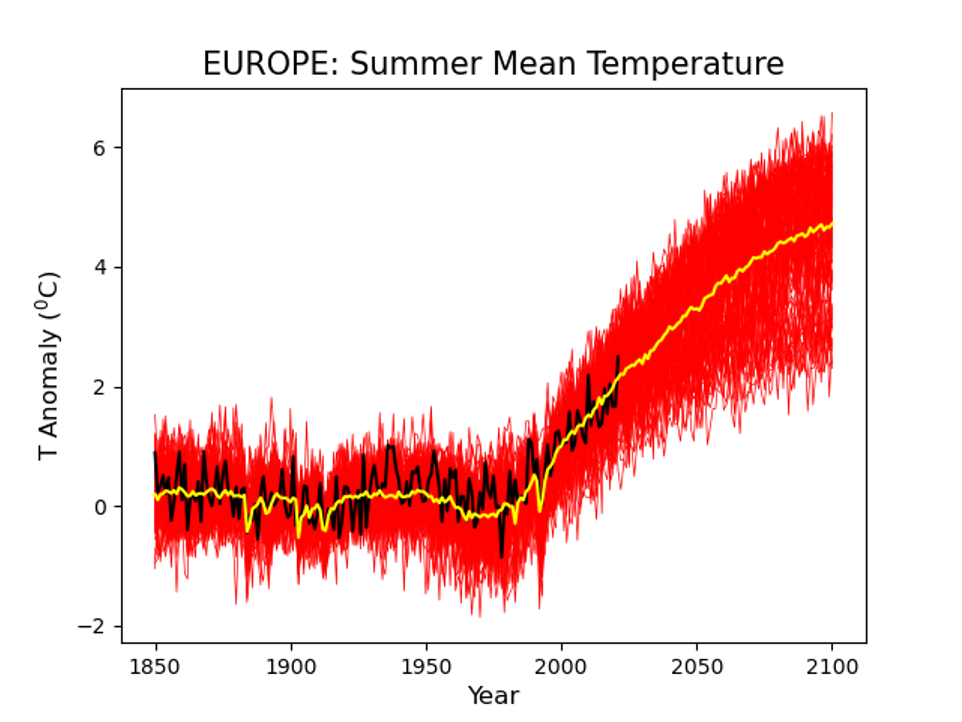Record-breaking heatwave will be an average summer by 2035, latest Met Office Hadley Centre data shows
London, 24 August 2022: The record-breaking heatwave experienced across Europe this summer will be considered an “average” summer by 2035, even if countries meet their current climate commitments so far agreed in negotiations under the 2015 Paris Agreement.
That’s according to the latest data from the Met Office Hadley Centre, commissioned by the Climate Crisis Advisory Group (CCAG).
The data (figure 1 below) looks at how rapidly temperatures are changing across Europe and tracks observed mean summer temperatures since 1850 against model predictions. It finds that, according to current predictions[1], an average summer in central Europe by 2100 will be over 4°C hotter than it was in the pre-industrial era.

Figure 1: Predicted and observed data on summer mean temperature across Europe by the Met Office Hadley Centre (2022). The red curves are individual runs of the model, the yellow curve is the average of these, and the black line is the observed summer temperatures in central Europe up to 2021.
The agreement between the observations over the period 1850 and 2021, black curve, and the model, the yellow curve, is very satisfactory. This gives us all confidence in the accuracy of the model itself, and puts to bed any doubts about the usefulness of these very powerful and detailed models.
This serves as an urgent reminder of the need for countries to go well beyond their nationally determined contributions so far pledged under the Paris Agreement, which aims to limit global warming to under 1.5°C if at all possible.
As such, CCAG argues for mitigative action to be pursued along three axes which the Group has termed the 3Rs.
-
Reduce emissions urgently, deeply and rapidly, while ensuring an orderly, just transition;
-
Remove CO₂ and other greenhouse gases from the atmosphere in vast quantities to reduce the total from today, in excess of 500ppm, to less than 350ppm;
-
Repair broken parts of the climate system, starting with the Arctic; to create a manageable future we must refreeze the Arctic Ocean which has already warmed to 3.5C above the pre-industrial levels and is exacerbating the extreme weather events around the world. The third ‘R’ is needed to buy time for us all to complete the actions on the first two.
Sir David King, Chair of the Climate Crisis Advisory Group, commented:
Professor Peter Stott from the Met Office Hadley Centre also commented: